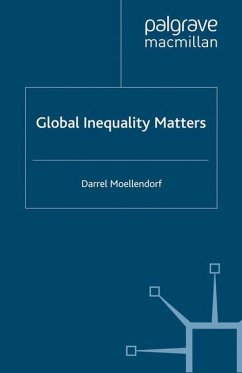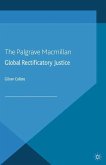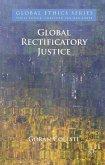The globalization of trade, investment, and finance continues apace. Many have benefited from this, but deep inequalities persist. This book argues that the interconnections established by globalization make possible a critique of its inequality. For those who take seriously human dignity, equality is a basic presumption of social institutions.
'The novelty of Darrel Moellendorf's book resides in taking a clear global perspective on a number of issues that can be truly said to affect almost everyone in the world. They are global inequality, global institutions of governance, global climate change Dr. Moellendorf shows how this change of perspective often alters our conclusions (which we tend to draw by looking more narrowly at nation-states only) and how this may be the most appropriate perspective to take in an era of globalization like ours. His emphasis on equal personal respect owed to every individual, and on global equality of opportunity is most welcome. This is a book which, because of its candid global perspective and the arguments it makes, will be read and cited by specialists from numerous fields.' - Branko Milanovic, Development Research, World Bank, USA
Moellendorf carves out and defends underexplored, promising territory in the philosophy of international justice. Those who argue that rich countries have robust positive obligations to aid poor ones tend to reject the idea that justice is a function of any association between them, whereas those who object to such obligations tend to think that justice requires an association, usually political or cultural, that is absent at the international level. Moellendorf resourcefully argues for a third way: justice between states depends on a kind of association that exists between them and that entails weighty positive duties on the wealthy to reduce global inequality by changing, e.g., existent trade and climate treaties. Displaying terrific philosophical and empirical erudition, tempering normative ideals with realistic prescriptions, and providing comprehensive discussions of the literature while avoiding jargon and minutiae, this book will be accessible and revealing reading for anyone interested in what states owe to each other in a globalized world. -Thaddeus Metz, Humanities Research Professor, University of Johannesburg, South Africa
'Darrel Moellendorf's timely book is a welcome addition to the literature of Global Ethics. It is well argued and offers the gift of a path for applying adroitly philosophical arguments to solve vexing contemporary global problems.' Eddy M. Souffrant, Associate Professor, Department of Philosophy, UNC Charlotte, USA
Moellendorf carves out and defends underexplored, promising territory in the philosophy of international justice. Those who argue that rich countries have robust positive obligations to aid poor ones tend to reject the idea that justice is a function of any association between them, whereas those who object to such obligations tend to think that justice requires an association, usually political or cultural, that is absent at the international level. Moellendorf resourcefully argues for a third way: justice between states depends on a kind of association that exists between them and that entails weighty positive duties on the wealthy to reduce global inequality by changing, e.g., existent trade and climate treaties. Displaying terrific philosophical and empirical erudition, tempering normative ideals with realistic prescriptions, and providing comprehensive discussions of the literature while avoiding jargon and minutiae, this book will be accessible and revealing reading for anyone interested in what states owe to each other in a globalized world. -Thaddeus Metz, Humanities Research Professor, University of Johannesburg, South Africa
'Darrel Moellendorf's timely book is a welcome addition to the literature of Global Ethics. It is well argued and offers the gift of a path for applying adroitly philosophical arguments to solve vexing contemporary global problems.' Eddy M. Souffrant, Associate Professor, Department of Philosophy, UNC Charlotte, USA







